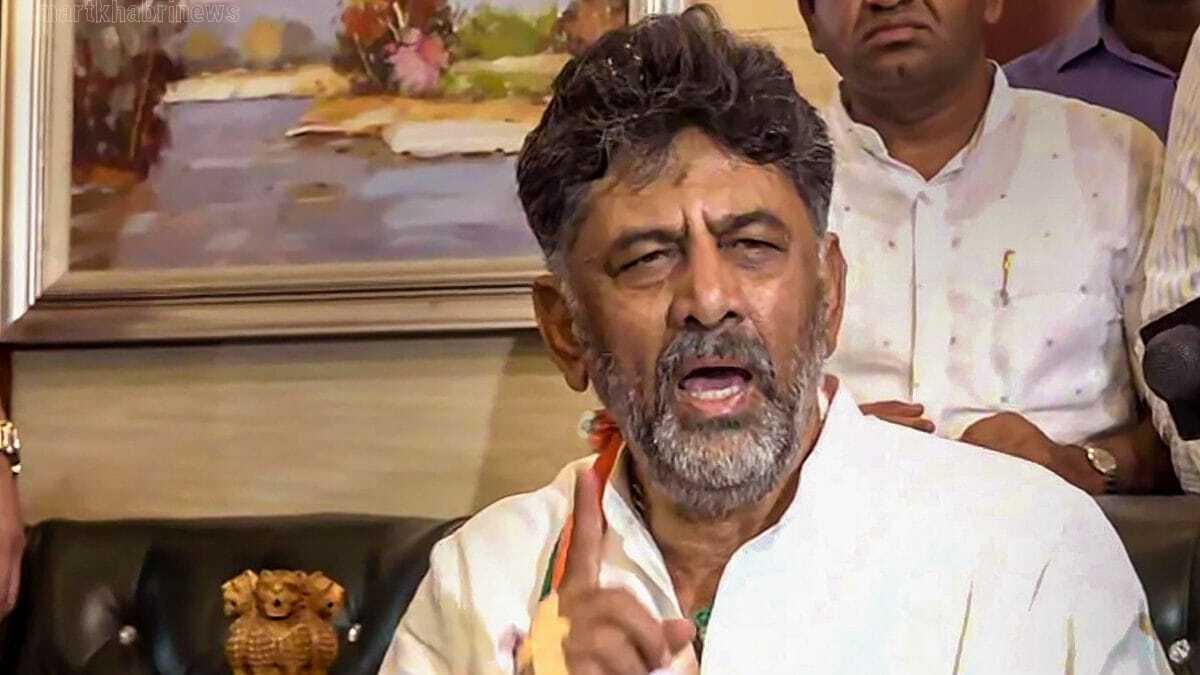Karnataka Deputy CM DK Shivakumar Talks About the Success of Griha Lakshmi Scheme
Amidst the launch of the Griha Lakshmi scheme in Mysuru, Karnataka’s Deputy Chief Minister, DK Shivakumar, took the time to discuss the achievements and plans of the state government in an exclusive interview with Smartkhabrinews. The scheme, designed to provide financial assistance to female heads of households, has not only improved the lives of countless women but has also set a precedent for other states to follow.
A Game-Changing Scheme for Women
The Griha Lakshmi scheme has emerged as one of the most impactful initiatives of the Karnataka government. Under this program, female heads of households receive a monthly cash assistance of Rs 2,000. The magnitude of the response has been remarkable, with a staggering 1.3 crore women registering for the scheme. Deputy CM Shivakumar emphasized that this scheme is not just a financial benefit; it holds the potential to bring about significant social and economic changes in the lives of these women.
“This will change their lives, social, and economic status,” Shivakumar affirmed during the interview.
Delivering on Promises
As the Karnataka Congress government marks its completion of 100 days in office, Deputy CM Shivakumar proudly stated, “We have delivered what we have promised.” The Griha Lakshmi scheme stands out as a testament to this commitment. With an allocation of over Rs 33,000 crore and enrollment of more than 1.3 crore women, it is clear that the government’s focus on women’s welfare has translated into tangible results.
“Out of 1.33 crore, only 1.1 crore have opted till now; they may register later as well. With the 1.1 crore who have applied, all of them will receive their sanction orders.”
Shivakumar reassured that the beneficiaries would receive sanction orders along with their application and ID numbers, ensuring transparency and efficiency in the process. The government’s commitment to Direct Benefit Transfer and the empowerment of women is evident in the seamless implementation of the scheme.
A Model for Other States
Karnataka’s success in implementing the Griha Lakshmi scheme has positioned it as a role model for other states. Deputy CM Shivakumar proudly remarked that the state has established a unique “Karnataka model” that showcases effective implementation and social engagement. He highlighted that the government had allocated two hours of television airtime for the rollout of the scheme, allowing women from all corners of the state to witness its launch. The program’s inclusivity even extended to Zoom participation from panchayat offices, enabling greater involvement.
“Definitely, we have set a standard of socio-economic strength,” Shivakumar affirmed, emphasizing the potential for other states to adopt this model for their own welfare schemes.
The Significance of Opposition
Addressing the absence of a strong opposition in the state, Shivakumar stated that a robust opposition is essential in a democracy to hold the ruling party accountable. He acknowledged the importance of a critical eye to identify and rectify any mistakes made by the government.
Future Promises and Good Governance
Looking ahead, Deputy CM Shivakumar outlined the government’s commitment to fulfilling promises over the next five years. He affirmed that the initiatives introduced would be continued and expanded upon, ensuring the delivery of good governance. He expressed his confidence in the faith and respect that the people of Karnataka have in the government’s ability to provide for their welfare.
“Not the RSS model, but we will have a cadre-based model where every panchayat and booth will be empowered. A leader must emerge from a panchayat to become a leader,” Shivakumar concluded, underlining the party’s approach to grassroots empowerment.
In conclusion, Deputy CM Shivakumar’s interview sheds light on the transformative impact of the Griha Lakshmi scheme and the Congress government’s dedication to delivering on its promises. The ‘Karnataka model’ stands as an inspiring example for other states to emulate, setting a new standard for socio-economic empowerment.
